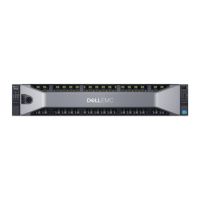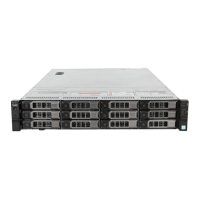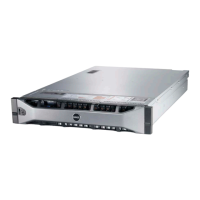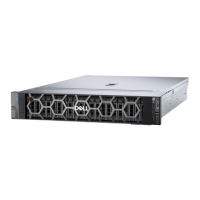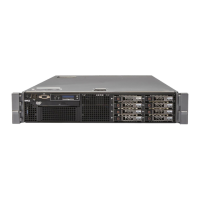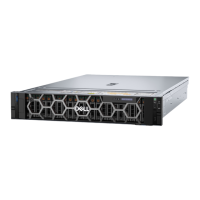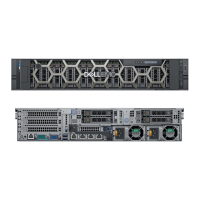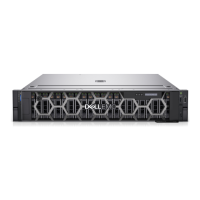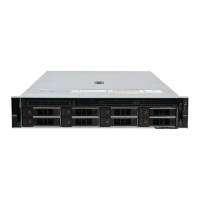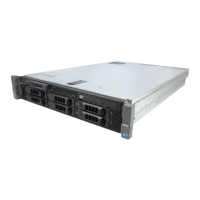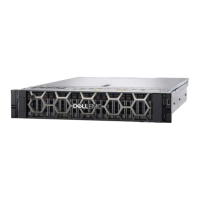41 PowerEdge R730 and R730xd Technical Guide
Table 23. Acoustical reference points and output comparisons
Acoustical performance data for the R730
Consciously designed to scale with configuration and usage, sound from the PowerEdge R730 in
minimal configuration is sufficiently quiet to be masked in open office layout environments. The
R730 meets Dell’s sound quality requirements.
Minimally configured
(1)
2.5” chassis in 23 ± 2 °C ambient
—
Idle
(3)
: LwA-UL
(4)
= 4.7 bels; LpA
(5)
= 28 dBA; No prominent tones
(6)
—
Operating
(3)
: LwA-UL
(4)
= 5.3 bels; LpA
(5)
= 33 dBA; No prominent tones
(6)
Typically configured
(2)
3.5” chassis in 23 ± 2 °C ambient
—
Idle
(3)
: LwA-UL
(4)
= 4.7 bels; LpA
(5)
= 28 dBA; No prominent tones
(6)
—
Operating
(3)
: LwA-UL
(4)
= 5.3 bels; LpA
(5)
= 33 dBA; No prominent tones
(6)
Typically configured
(2)
2.5” chassis in 23 ± 2 °C ambient
—
Idle
(3)
: LwA-UL
(4)
= 4.7 bels; LpA
(5)
= 28 dBA; No prominent tones
(6)
—
Operating
(3)
: LwA-UL
(4)
= 5.8 bels; LpA
(5)
= 39 dBA; No prominent tones
(6)
1. Minimum configuration means 1 x 85W-6C CPU (Intel E5-2609 v3), 1 x 4GB DIMM, 1 x Client SSD, 1 x 495W PSU, no PCI cards, and
6 system fans.
2. Typical configuration means:
For 3.5” chassis: 2 x 105W-10C CPU (Intel E5-2660 v3), 8 x 8GB DIMM, 6 x 3.5” SATA HDD, 2 x 750W PSU, 1 x H730 miniPERC,
1 x Intel 1GbE NDC card, 1 x 1GbE NIC card, and 6 system fans.
For 2.5” chassis: 2 x 105W-10C CPU (Intel E5-2660 v3), 8 x 8GB DIMM, 8 x 2.5” 10K SAS HDD, 2 x 750W PSU, 1 x H730 miniPERC,
1 x H830 external PERC, 1 x Intel 1GbE NDC card, 1 x 1GbE NIC card, and 6 system fans.
3. Idle means the state in which the product is doing nothing but running OS; values for Operating are the maximum of acoustical output
for active HDDs or active CPUs.
4. LwA – UL is the upper limit sound power levels (LwA) calculated per section 4.4.1 of ISO9296 (1988) and measured in accordance to
ISO7779 (2010).
5. LpA is the average bystander position A-weighted sound pressure level calculated per section 4.3 of ISO9296 (1988) and measured in
accordance with ISO7779 (2010). The system is placed in a 24U rack enclosure, 25 cm above reflective floor.
6. Prominent tone: Criteria of D.6 and D.11 of ECMA-74 12th ed. (2012) are followed to determine if discrete tones are prominent. The
system is placed in center of ISO7779 table and acoustic transducer is at front standing operator position, ref ISO7779 (2010 Section
8.6.1, Position P1).
Acoustical dependencies for the R730
System thermal profile Selected in BIOS: The system default setting is “Power Optimized (DAPC)”,
which is in general a lower fan speed and noise level. If “Performance optimized” is selected, the
fan speed/noise level will increase.
Value measured at your ears
Equivalent familiar noise experience
Data center, vacuum cleaner, voice must be elevated to be heard
Whispering, open office layout, normal living room
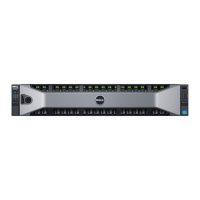
